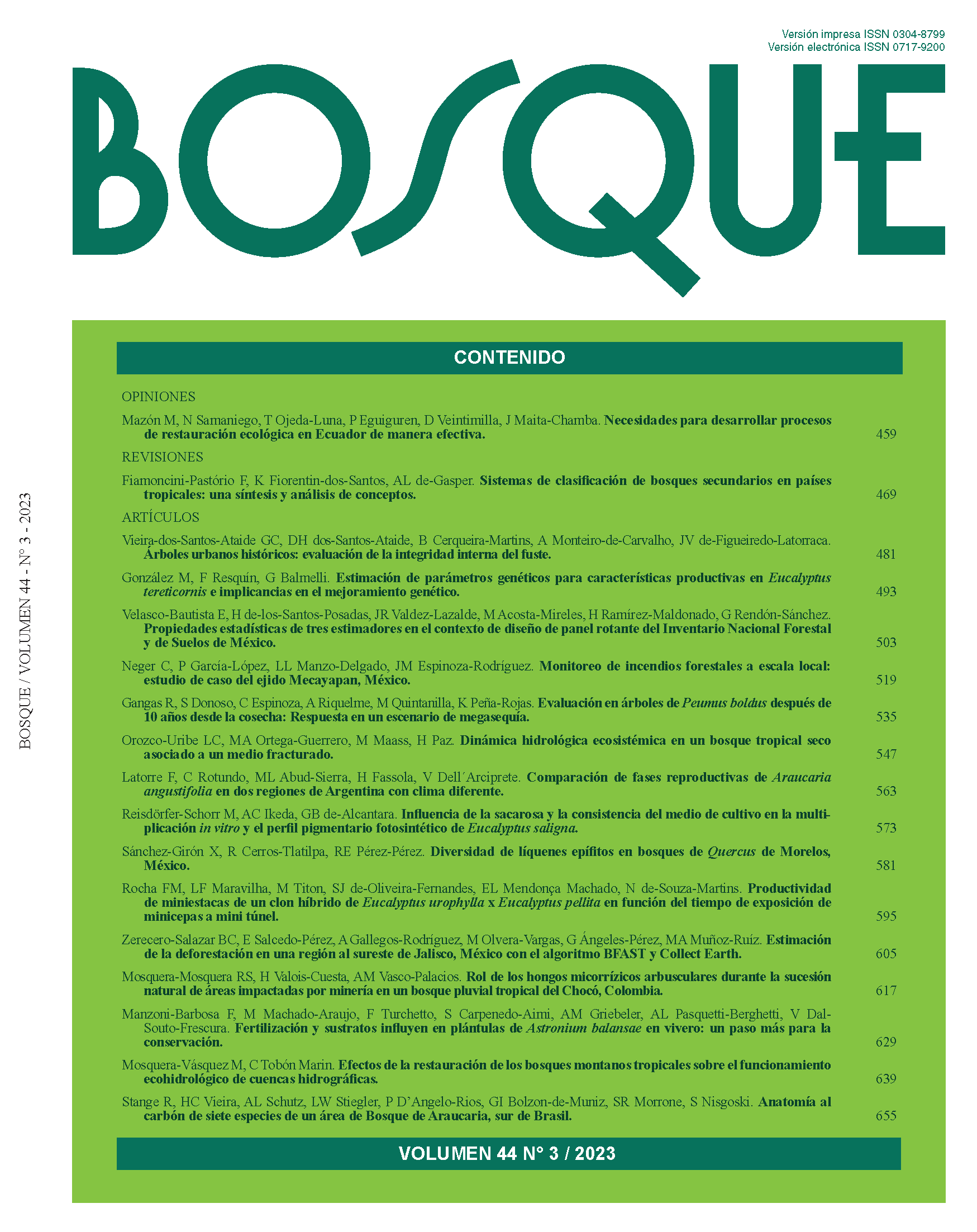Effects of tropical montane forest restoration on the ecohydrological functioning of watersheds
Main Article Content
Abstract
At the global level, ecological restoration is becoming increasingly important due to the degraded conditions of ecosystems, which requires urgent efforts to recover these ecosystems and reestablish ecosystem services and forest biodiversity. However, there is a scarcity of studies evaluating the effects of forest restoration programs on soil properties and ecohydrological functioning of tropical ecosystems, which are in rapid decline. This research aims to evaluate ecohydrological processes in two low montane moist forest (bh-MB) watersheds subjected to ecological restoration (El Silencio and Montañita), compared to one with pastures (Pastos), and to characterize the variables influencing these processes in emerging ecosystems. In each watershed, climatic variables were monitored, and the physical, hydraulic and organic matter properties of the soil were measured, along with ecohydrological variables. The results indicate that watersheds under the restoration program exhibit a tendency to recover the initial conditions of soil properties, favoring the regulation of summer flows and reducing storm flows. In contrast, the pasture watershed shows a tendency towards degraded soils. The natural regeneration process of the forest in areas dedicated to extensive cattle raising contributes to improving the physical conditions of the soil. This improvement, in turn, facilitates water recharge to the aquifers and sustains the base flow during periods of low precipitation.


 https://orcid.org/0000-0002-6910-5930
https://orcid.org/0000-0002-6910-5930